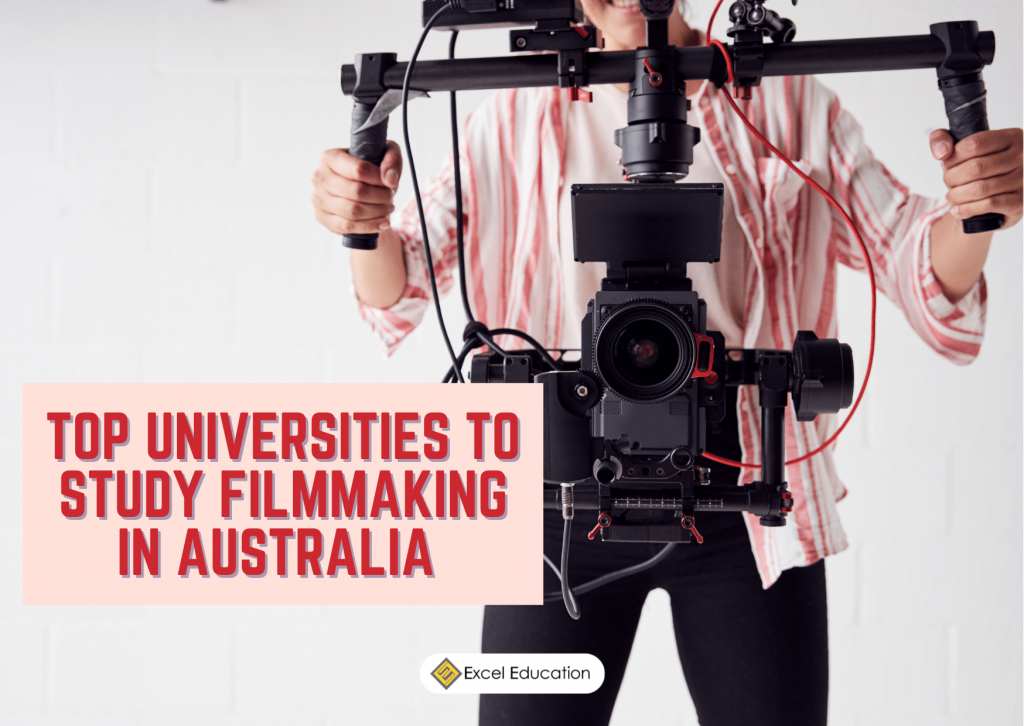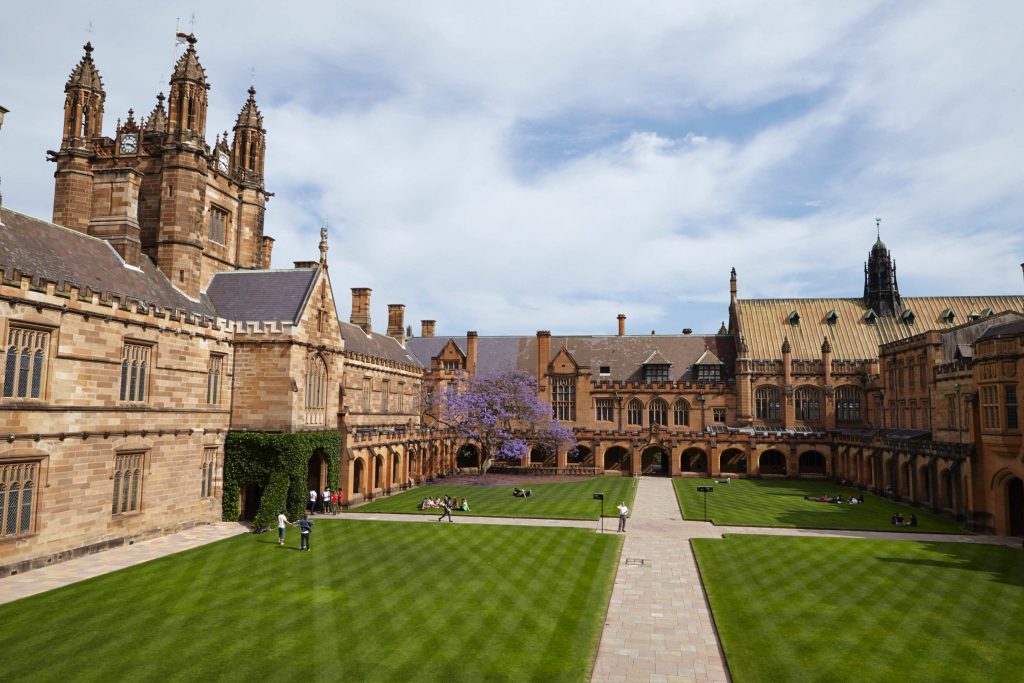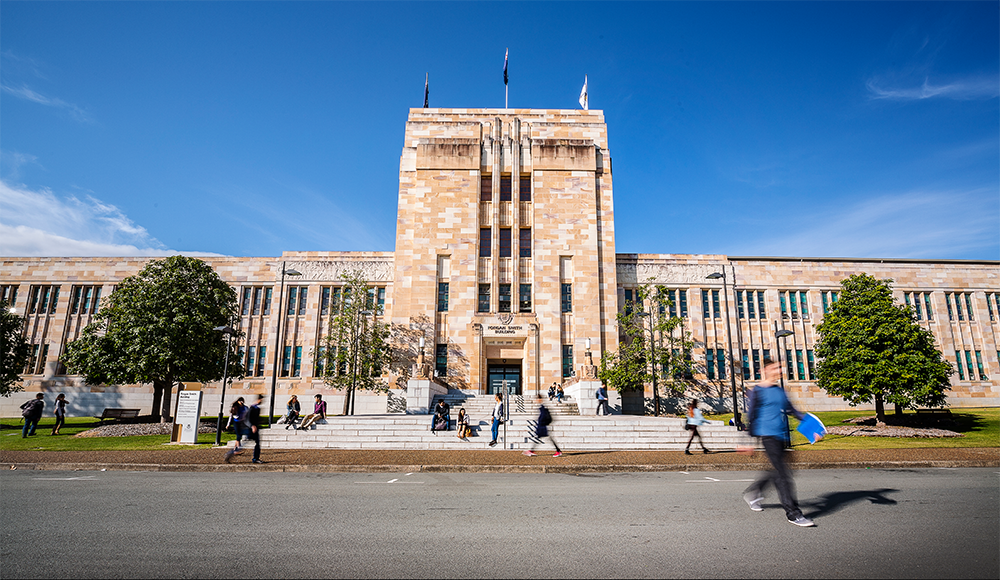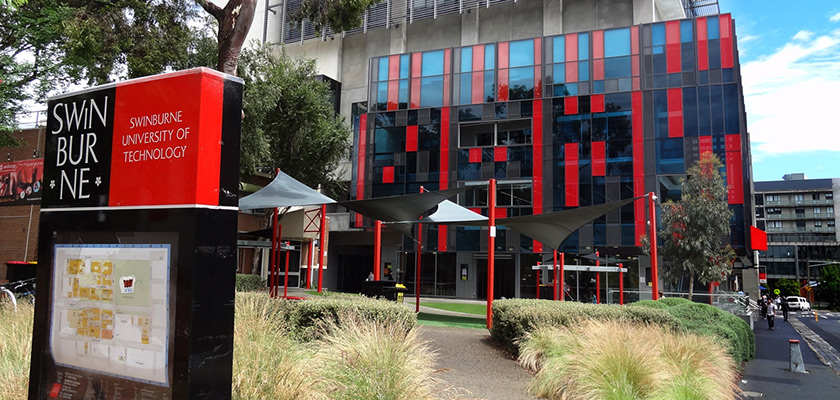
If you are someone who is into creativity, a degree in filmmaking might help you achieve your dreams of creating your own silver-screen sensation
What is Filmmaking?
Filmmaking degrees, as the term indicates, offer you the required abilities and expertise to help establish a future in the film industry. Filmmaking degrees usually have a great emphasis on practical work, which means that rather than merely learning how to produce a film, you will gain hands-on experience and the ability to apply skills as you learn them. A typical filmmaking degree will include strengthening your editing, script-writing, and production abilities.
Reasons to Study Filmmaking
If you’ve always wanted to work in the film industry but do not think you have the technical skills to get started, a degree in this field might be the answer. A filmmaking degree will channel your passion and teach you how to turn it into a visual art piece, while also providing you with the creative flexibility to create something that is meaningful to you.
1. See your ideas come to fruition
Nothing beats creating something that everyone enjoys. Unlike an article, the communication of thoughts and concepts in filmmaking is not limited by language. With a variety of filters, camera angles, edits, colours, and other settings at your disposal, you will never run out of options to protect your view.
2. Exciting job opportunities
Not a lot of industries can beat the joy and excitement associated with film and television. It is not assured, but studying filmmaking can lead to a position in the one-of-a-kind sector with intriguing opportunities.
3. The world will always seek entertainment
The world has always had a passion for the performing arts, from Roman amphitheatres to Shakespearean masterpieces, and Film Making is just the newest version. By obtaining a degree in this field, you will be preparing yourself for a job that will never be outdated.
4. Skills that can be transferred
A Film Making degree can help you build a diverse range of talents. This will come in handy if you decide to pursue a different career path after graduation. You’ll learn how to establish a creative concept and take it through to completion, as well as project management skills, technical experience, and the ability to analyse your own work – all of which are useful talents in any industry.
What are Some Of The Skills You Need To Be In The Filmmaking Industry?

1. Communication Skills
You must have excellent communication skills because you will be working with actors and actresses, production personnel, and everyone else on and off the film set. This is critical to ensuring that the precise order is provided in order to avoid any misunderstanding that might result in a film failure.
2. Creativity
Your creative ideas must always be flowing. With so many films and movies being made, yours must not be similar to others or you could face copyright troubles. Not only that, but throughout the filming day, there are always new problems to face, such as weather forecasts, crew tardiness, or the occasional absence of talents. To minimise filming delays, you’ll need to use your creativity to solve these issues.
3. Expert in Technology
Every year, more advanced technology is being developed to generate high-definition films as we enter Industrial 4.0. You must keep yourself up to date with new camera equipment that will be utilised in the production. Every element, such as camera, lighting, frame, and sound, requires a high level of technological competence.
Career Options With A Filmmaking Degree
- Film Director
- Film Producer
- Art Director
- Camera Operator
- Costume Director
- Video Editor
- Production Designer
- Television Production Coordinator
General Requirements to Study Filmmaking in Australia
English Requirements
IELTS | 6.5 (with no individual band score less than 6.0) |
TOEFL (Internal Based Test) | Overall 79-93, writing 21 |
TOEFL (Paper Based Test) | 550 |
Pearson (PTE) | 58-64 |
Academic Requirement
GCE A-Levels or Equivalent | Minimum 6 points in 3 subjects, where A*=6, A=5, B=4, C=3, D=2, E=1 |
International Baccalaureate Diploma Program (IBDP) | 26 |
ATAR | 66.5 |
UEC | 14, maximum 10 subjects. (Where A1=8, A2=7, B3=6, B4=5, B5 =4, B6=3, C7=2, C8=1) |
Top Universities to Study Filmmaking in Australia
#1 University of Melbourne

As a Film and Television student, you will acquire creative, technical and analytical skills in an open environment that will encourage you to remain innovative and experimental in your work. This program will provide you with the opportunity to write, direct and edit your own work, as well as crew on fellow students’ productions. The subjects enable you to explore cross-disciplinary studies that will build on existing knowledge or present opportunities for you.
Programme Name | Bachelor of Fine Arts (Film and Television) |
Duration | 3 years |
Intakes | February |
Indicative Fees |
#2 University of Sydney

In Film Studies you will learn scholarly terms that will enable you to describe what you see on screen in relation to, for instance, camera movements and editing techniques or traditions of screen performance. You will develop rich understandings of concepts such as national cinema, genre and spectatorship through a diverse range of case studies. You will also study and analyse the historical development of film as a cultural and technological form.
Programme Name | Bachelor of Arts (Film Studies Major) |
Duration | 3 years |
Intakes | February, August |
Indicative Fees |
#3 University of Queensland

Film and Television Studies at UQ introduces the language of screen media and the principal ways in which they are written about and analysed. The major focus is on popular film and television and the contexts within which they are produced and received. This includes studying contemporary and historical film movements, various film and television genres, Hollywood texts, Australian screen media, and films from a range of national cinemas.
Programme Name | Bachelor of Arts (Film and Television Studies Major) |
Duration | 3 years |
Intakes | February, July |
Indicative Fees |
#4 University of Adelaide

Film studies helps you develop the skills needed to critically evaluate films. As a film studies student at The University of Adelaide, you will study a range of techniques used in films to generate and analyse reactions from viewing audiences. From the use of pop culture and current world events to trending topics and themes in films – discover what makes a quality film.
Programme Name | Bachelor of Arts (Film Studies) |
Duration | 3 years |
Intakes | February, July |
Indicative Fees |
#5 Swinburne University of Technology

The Bachelor of Film and Television (Honours) teaches you how to make narrative films, documentaries, animations, experimental films, music videos and television commercials. You’ll gain the essential creative skills, technical knowledge and theory to make high-quality cinema, television and digital media productions. You’ll be able to use state-of-the-art workstations; a purpose-built green screen room; interactive pen displays; high-end still, video and film cameras; and render farms.
Programme Name | Bachelor of Film and Television (Honours) |
Duration | 4 years |
Intakes | February |
Indicative Fees |
#6 Queensland University of Technology (QUT)

This film course for the digital age provides opportunities to develop your skills in producing, writing, editing, sound, cinematography or directing. You will learn skills used in audio-visual media, gain business and leadership skills, and knowledge of how the entertainment industry works. Regardless of your chosen specialisation, this broad base of skills will make you attractive to employers, or set you up to better take control of your freelance career.
Programme Name | Bachelor of Fine Arts (Film, Screen and New Media) |
Duration | 3 years |
Intakes | February, July |
Indicative Fees |
#7 University of South Australia

The Bachelor of Film and Television is an innovative degree that puts you at the cutting-edge of film, television and visual effects (VFX) production and theory. You’ll develop the technical knowledge and experience needed to enter the exciting world of screen production and content creation. While you study you will develop the skills and contacts you need for a successful career in the creative industries; graduating with a digital portfolio of work and practical industry experience.
Programme Name | Bachelor of Film and Television |
Duration | 3 years |
Intakes | February, July |
Indicative Fees |
#8 Griffith University

The Bachelor of Film and Screen Media Production program is offered full-time and on-campus at South Bank. You will receive a hands-on education across various formats, including high definition video, and will have access to a state of the art cinema. You will learn how to work in a team to bring visions to life on the screen, as well as gain a thorough grounding in the history, practice and critical analysis of the film.
Programme Name | Bachelor of Film and Screen Media Production |
Duration | 3 years |
Intakes | March |
Indicative Fees |
#9 Deakin University

Learn how to take a great story and shape it for film, TV and online platforms. Create live-action and animated films across documentary, drama and more experimental productions. Deakin’s Bachelor of Film, Television and Animation enables you to explore storytelling on-screen through multiple roles and practices while developing your communication and specialist skillset within the dynamic fields of screen production and screen culture.
Programme Name | Bachelor of Film, Television and Animation |
Duration | 3 years |
Intakes | March, July, November |
Indicative Fees |
Recommended Articles to Read
About The Author

Jme S
I thank life for happening, thank every twist and turn, I believe that there is a reason for every single thing, a reason for every worry and concern.


